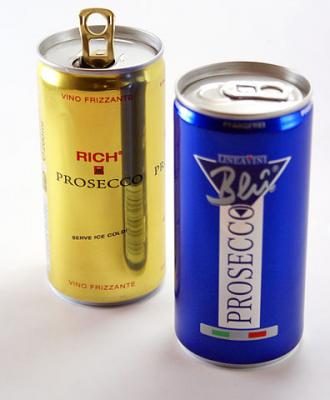Italy in a fizz over Prosecco on tap

ROME - Italian authorities are calling for UK pubs that sell imitation Prosecco on tap to face heavy sanctions.
Sales of Prosecco have boomed in the past few years and are now reportedly outstripping sales of champagne. But the wine is under threat from cheaper imitation fizzy wines, especially in the UK.
The UK is now the fastest growing market for Prosecco and has overtaken Germany as the No. 1 consumer of the drink. Fruity, floral, crisp and just one third of the price of Champagne, it has been drunk in increasing quantities since the economic recession affected the wine market in 2008.
The popularity of the drink has caused to some pubs to serve it on tap. However, wine sold as Prosecco, is protected by EU quality assurance labels for DOC (controlled destination of origin). These guidelines state that fizzy wine can only be sold as Prosecco if it meets certain criteria. These criteria cover the grape variety used to make the wine, its geographical origin, and crucially, that it is sold in bottles.
Stefano Zanette President of the Consorzio Tutela Prosecco DOC (Consortium for the protection of DOC Prosecco) said: “The practice of selling Prosecco on tap must be stopped immediately. In order to do this we are in contact with both the Italian and European authorities. Selling Prosecco like this doesn't just penalize producers, it also damages consumers who think they are drinking a sparkling white wine, which is perhaps not even Italian.”
Michele Anzaldi, an MP for Italy's agriculture commission asked the EU to act “against the UK in defence of Prosecco given its incorrect provision in British pubs.”Although the fault lies with both distributors and sellers, at present venues found guilty of selling a wine that has been mislabelled as a DOC “Prosecco”can be fined up to 20,000 Euros. This includes any kind of wine labelled DOC Prosecco that is sold on draft from beer kegs.
But the issue is not a simple as false marketing. Recent DOC definition in 2009 forced producers to reduce their yields. In order not to make ends meet some producers import grapes and make sparkling white wine that does not qualify for DOC status, flooding the market with cheap, fake Prosecco.
Prosecco has a controversial history in the UK. In 2010, Marks and Spencer were forced to withdraw 14,000 bottles of an imitation Prosecco called “Rosecco” as it was feared the name might mislead consumers.


